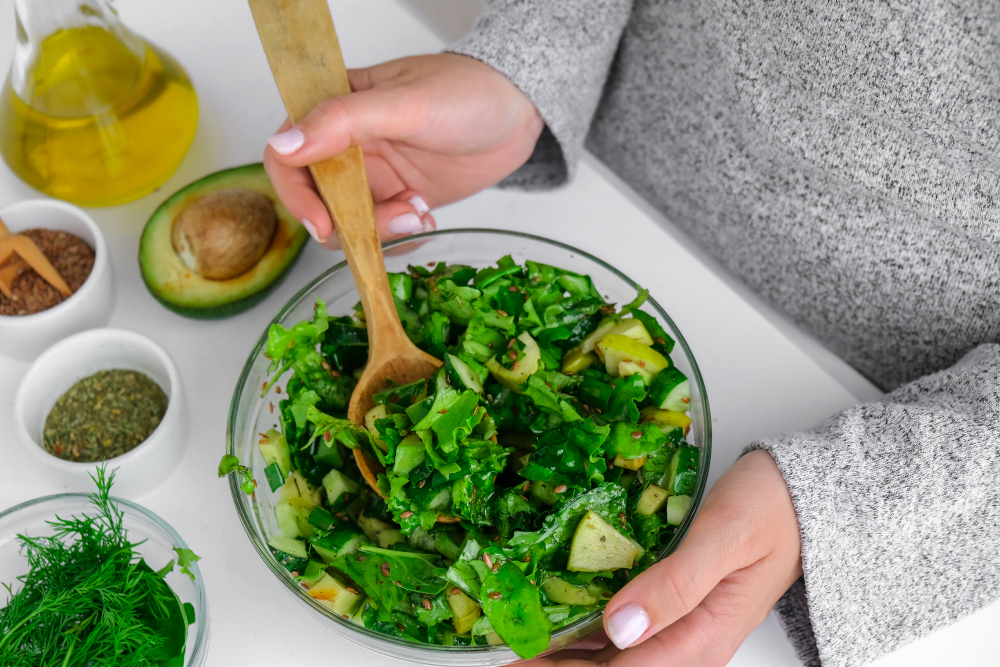With every new year comes a whole host of new trends in the health and wellness space, and as we head full swing into spring, this year’s cohort have already begun to make themselves known. But health and wellness is more than just a passing fad, and this year, it seems that we’re finally reaching a point where we’re prepared to make the long-term commitment required to make it a priority for the long term.
From quitting smoking to focusing on our immune system and gut health, these are the moves we’ve been making so far this year to boost our health and wellbeing, and the building blocks for a lifetime of healthier habits that will keep us feeling at our most vibrant for longer.
Finally stopping smoking

The numbers of people smoking cigarettes and other tobacco products in the UK has been falling steadily over recent years, and what was once a widely glamourized habit is now viewed as one of the worst possible things you can do for your long-term health. In 2021, 3.3 million people had moved over to stepping-stone products like the vape pen with a view towards eventually kicking the habit completely, while those determined to erase the habit from their lives sooner rather than later are going cold turkey from day one.
Thanks to the multitude of nicotine products now available to help those looking to quit, plus the growing body of research around the long-term effects and dangers of smoking – not to mention the rather grotesque campaigns that now feature on cigarette packets – it seems that smoking could soon be a habit the nation collectively leaves behind for good. When exactly that will happen remains to be seen, but we certainly seem to be on the right path.
Making space for mindfulness

As we slowly but surely begin to gain a greater understanding around the mind-body connection, the penny is also beginning to drop when it comes to the importance of making space for mindfulness. The pressures of the pandemic have forced us to re-examine our daily habits and seek to gain greater clarity as to whether our routines are really supporting our needs in the way they should, and with a growing number of us seeking solace from the stresses and strains of modern life, meditation and daily gratitude practices are enjoying a dramatic surge in popularity.
But they aren’t the only mindful practices we’re embracing – in fact, it seems we’re looking for new and far-reaching ways to integrate the practice into our days. Over the past year, Google searches for the term ‘mindful running have increased by 80 percent, while ‘mindful exercise’ was up 53 percent. It just goes to show that even the busiest of individuals don’t have to find specifically for mindfulness, but can plump for habit stacking instead – an efficient use of time that allows you to multi-task in a way that benefits you, rather than overwhelms you.
Boosting gut health

Another area in which that mind-body connection comes into play, we now have a greater understanding than ever before of how gut health can impact upon our overall wellness and wellbeing – even our mental health. We now know that our gut is home to a large number of neurotransmitters, so as well as keeping our digestive systems healthy, balancing the gut can offer benefits that are much farther reaching.
Over the past year, Google searches for ‘gut health’ have surged by 83 percent, while those seeking information on the ‘gut brain axis’ have peaked at 60 percent higher than in the previous twelve months. Largely, we’re looking to boost the numbers of good bacteria in our gastro-intestinal (GI) tracts, so it’s perhaps unsurprising that the money we’re spending on prebiotic and probiotic supplements and food items is also on the rise.
We’re also taking a fresh look at our diet and seeking to minimise highly processed products, which can irritate the gut – as well as packing in foods that are high in tryptophan – the precursor to serotonin – to give those neurotransmitters what they need.
The bottom line
Thanks to constant scientific advances in the field of health and wellbeing, plus a growing trend for being more open minded about our own approaches to the issue, we’re now better equipped than ever before to implement a robust routine that will set us up for a healthier future. While there’s still a long way to go, those of us who take action now will be thanking ourselves for it in the future – so if you’ve been stuck on the fence or finding it difficult to fully commit, then make 2022 the year you say ‘I do’.






















